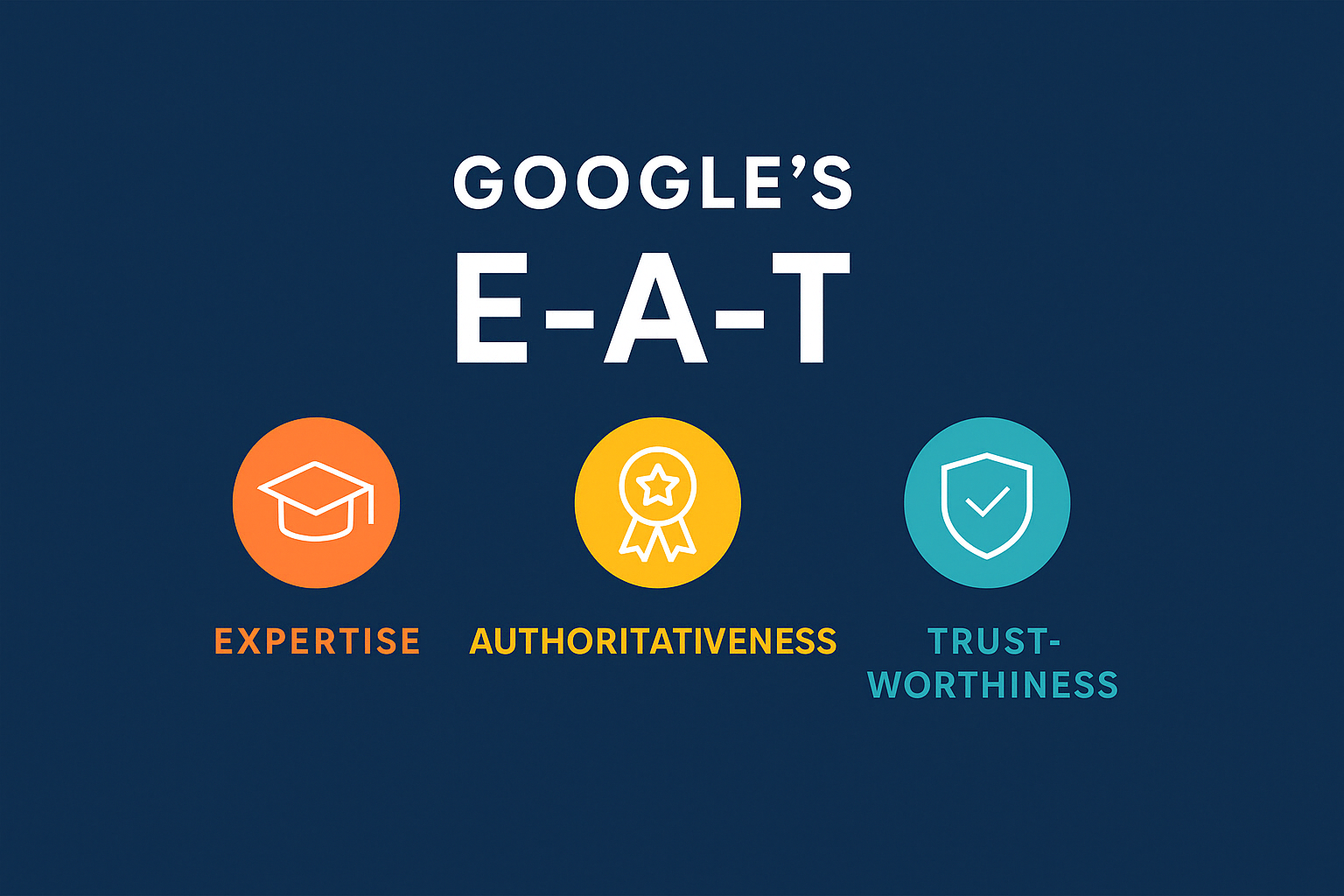Search engine optimization (SEO) has evolved beyond keywords and backlinks. In today’s digital landscape, trust is currency, and Google’s EAT—Expertise, Authoritativeness, and Trustworthiness—sits at the heart of ranking well. Implementing EAT for SEO success is not just a recommendation; it’s a necessity for businesses and content creators who aim to build credibility and maintain visibility in competitive search results.
In this blog, we explore what EAT means, how it influences Google’s evaluation of websites, and how you can strategically implement it to achieve SEO success.
What is EAT and Why It Matters in SEO
Introduced in Google’s Search Quality Evaluator Guidelines, EAT is a framework used to assess the quality of content, websites, and authors. While it is not a direct ranking factor, EAT influences many signals that Google’s algorithms use to determine where your pages should appear in search results.
Key reasons EAT is vital:
- It directly affects how Google ranks content, especially in sensitive industries like health, finance, and law.
- It ensures that users are served accurate, helpful, and safe content.
- It plays a significant role in building long-term brand authority and digital trust.
Core Elements of EAT for SEO Success
1. Expertise
This refers to the content creator’s knowledge and qualifications in the subject matter.
Examples of demonstrating expertise:
- Articles written by certified nutritionists on health blogs.
- Legal guides authored by practicing attorneys on law firm websites.
- Educational content authored by teachers or PhDs.
Tip: Expertise can also be shown by “everyday experts” sharing lived experiences, especially in lifestyle, parenting, or travel blogs.
2. Authoritativeness
This is about your website or brand being recognized as a source of authority by others in your industry.
Build authority by:
- Earning backlinks from reputable websites.
- Getting mentioned by industry influencers.
- Featuring in news publications or authoritative round-ups.
Stat: According to Backlinko, the average top-ranking page gets linked to from 3.8 times more domains than lower-ranked pages.
3. Trustworthiness
Trust is built when your website is secure, accurate, and transparent.
Boost trust by:
- Using HTTPS across all pages.
- Displaying author bios with credentials and contact information.
- Publishing updated content with cited sources.
Insight: A study by SEMrush shows that 65% of users abandon websites they don’t trust after their first visit.
Real-World Examples of EAT in Action
- Mayo Clinic is a classic example of EAT for SEO success. Its health content is created and reviewed by certified professionals, referenced with peer-reviewed studies, and clearly attributes authorship.
- Investopedia excels in financial topics by citing financial experts, linking to credible sources, and explaining complex terms in simple language—boosting both authority and trust.
How EAT Applies to YMYL Websites
YMYL (Your Money or Your Life) websites deal with content that can impact a person’s finances, health, or safety. Google applies stricter EAT standards to these websites.
Examples of YMYL content:
- Investment advice
- Medical symptoms or treatments
- Legal processes and rights
If your business falls under this category, strengthening your EAT signals is imperative.
Practical Strategies to Implement EAT for SEO Success
Here are actionable steps any organization can take to align with EAT principles:
1. Showcase Author Credentials
- Add author bios to all content pages.
- Include qualifications, affiliations, and social profiles.
- Use schema markup to tag authors in your code.
2. Create and Maintain a Strong About Page
- Share your company’s mission, values, and team credentials.
- Include links to media mentions or awards.
3. Regularly Update Content
- Ensure accuracy by revisiting and updating older blog posts.
- Add “last updated” timestamps to pages with time-sensitive information.
4. Secure Your Website
- Migrate to HTTPS.
- Include trust signals such as privacy policies, terms and conditions, and SSL certificates.
5. Improve Off-Page Signals
- Earn quality backlinks through guest posts or PR outreach.
- Engage on social media to increase brand mentions.
6. Get Positive User Reviews
- Encourage reviews on platforms like Google, Yelp, and industry-specific directories.
- Respond professionally to both positive and negative feedback.
7. Audit Your Content
- Remove or improve low-quality, duplicate, or outdated content.
- Use tools like Google Search Console, Ahrefs, or SEMrush to identify underperforming pages.
Building EAT for SEO success isn’t an overnight task—it’s a long-term investment in credibility, transparency, and quality. Whether you’re running a healthcare blog, an eCommerce platform, or a legal consultancy, aligning your digital presence with EAT principles will position your brand as a reliable authority and boost your chances of climbing the search engine rankings.
Start with credibility. Scale with trust. Win with EAT.
